
The Role of an Executive Producer in Film & TV
The title executive producer is one of the most prestigious and sometimes secretive roles in the entertainment industry. The EP plays a crucial part in bringing film, television, streaming content, or independent productions to life.
However, what they actually do can remain a mystery. What are the responsibilities of an executive producer and how does their role differ from a standard producer?
In today’s post, we’ll be breaking down the key duties of an executive producer, compare them to other types of producers, and explore their impact across different media formats. Plus, we’ll take a look at some of the industry’s famous EPs who have left a lasting impact across film and television.
Ready? Let’s get started!

What is an Executive Producer?
Essentially, an executive producer is a high-level decision-maker who oversees a production from start to finish. Unlike hands-on producers who manage the day-to-day operations, an executive producer focuses on the bigger picture.
Why is this? Well, there needs to be someone to manage financing, approve major creative decisions and ensure that the project aligns with its intended vision and commercial goals.
The role of an EP varies depending on the type of production. In film, they may oversee fundraising or securing distribution deals. Whereas in television, they often function as showrunners, shaping the creative direction of a series. Also, in streaming, executive producers also play a critical role in developing the binge-worthy content we see on platforms such as Netflix, Amazon Prime, and Hulu.
While executive producers don’t always get involved in the nitty gritty of filmmaking or television production, they still have significant influence in a production. They’re often the key drivers behind a project’s overall success.

Key Responsibilities of an Executive Producer
- Securing Funding and Financing: Executive producers often use their industry connections to bring in investors or manage studio funding. For example, they may negotiate deals with production companies or streaming platforms.
- Budget Oversight: EPs approve budgets and ensure that the project stays on track financially. This includes managing unexpected costs and reallocating resources when needed.
- Hiring Key Team Members: From directors to lead actors, executive producers often have the final say in assembling the core creative team.
- Creative Decision-Making: While not always involved in day-to-day production, EPs influence the creative direction by approving scripts, storyboards, or major stylistic choices.
- Managing Stakeholder Relations: EPs ensure alignment between investors, studios, and the creative team, addressing conflicts or challenges as they arise.
Executive Producer vs. Producer: What’s the difference?
Executive Producer vs. Producer: What’s the Difference?
While both roles contribute to a production’s success, their responsibilities differ significantly. Executive producers focus on funding, high-level decision-making, and securing key talent, while producers handle the day-to-day logistics, scheduling, and on-set management.
Since their responsibilities overlap at times, creative differences can arise—but ideally, both roles should work in sync to bring a project to life.
Read more on how executive producers and producers collaborate – (or clash) on set.
If you’d really love to dig deep, we also have an article on the 8 key differences between the two roles!
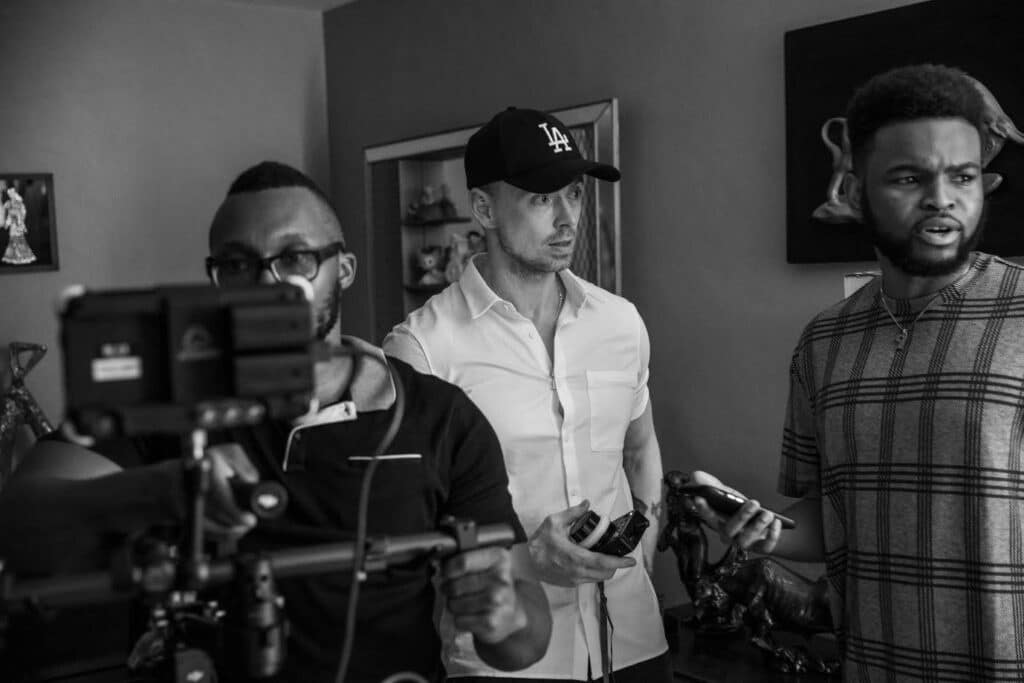
Related Reading: 10 Great Pieces of Advice for Beginner Producers from Filmmaking Veterans || New York Film Academy
Struggling to write your screenplay?
Get started with Celtx’s screenwriting software for seamless script formatting.
Download Celtx today.
An Executive Producer’s Responsibilities in Different Types of Productions
Let’s take a deep dive into the role of an executive producer in the worlds of film, television, streaming and independent productions.
Film
In the film industry, an EP’s primary responsibility is securing financing. This includes working with studios, independent investors, or production companies to raise the necessary funds for production.
They also help with negotiating distribution deals and ensuring that the film gets the exposure it needs before, during and after its release.
Yes, they may not be involved in the daily shooting schedule, but their working hard behind the scenes, using their business acumen to ensure the film gets made and reaches audiences.
Television
Executive producers in television often take a more hand-on role, typically functioning as the showrunner. They manage everything from the scriptwriting process to post-production.
Overall, they are responsible for the show’s overall creative vision and ensuring that it’s realized through every stage of the production process. As showrunners, they also must make sure each and every episode aligns with the overall narrative arc set out, managing a team of writers along the way.Notable showrunners and executive producers who play a dominant creative role in their shows include Shonda Rhimes (Grey’s Anatomy) and Vince Gilligan (Breaking Bad).
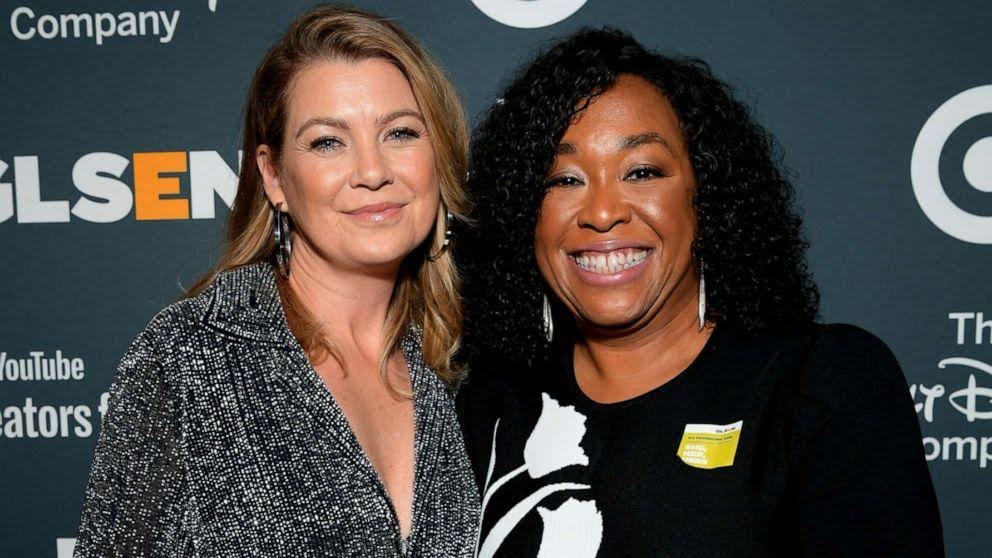
Streaming
With the rise of platforms like Netflix and Disney+, streaming executive producers have become increasingly important figures in developing new and exciting content. They work closely with platforms to develop the series we love to binge and films that fit within each streaming service’s brand.
Since streamers have prioritized viewer engagement and retention more and more, executive producers focus heavily on storytelling strategies that keep their audiences hooked and begging for more!
Independent Productions
In indie filmmaking, the executive producer is often deeply involved in multiple aspects of a production. This is due to most independent movies having tighter budgets, meaning most executive producers will work as both financier and producer, managing funding, hiring talent, and securing distribution deals on a smaller scale.
Video Games
Executive producers play a key role in overseeing large-scale video game development projects. They ensure that the game stays on budget, meets deadlines, and aligns with the creative vision.
Collaborating closely with developers, publishers, and marketing teams, an executive producer ensures the game’s commercial success and high-quality execution. This has become more important than ever in the games industry; much like its film and television counterparts, the rise of online gaming stores and streamers on platforms like Twitch, mean that commercial and independent game studios are all fighting for our attention.

Theater and Live Productions
Much like film, a theatrical executive producer is responsible for raising funds, managing contracts, and overseeing coordination such as venue selection and marketing strategies.
They work closely with directors, playwrights, and production teams to ensure the performance reaches its intended audience and achieves financial success.
Related Celtx Reading: How to Write a Play: A Step-by-Step Guide
How to become an Executive Producer
Becoming an executive producer requires a mix of industry knowledge, networking skills, and financial acumen. So, if this sounds like something you’d like to pursue, then keep on reading for our top tips for aspiring executive producers:
Gain Experience in the Industry
Before you ascend to the role of executive producer, it’s crucial to learn as much about the industry as you can.
Start by working in various production roles. Starting from runners and production assistants, all the way up to assistant director, producer or script supervisor. Let your interests and passions for the world of film lead you.
Build experience in budgeting, scheduling, and managing production teams. Remember, you don’t just have to stick to the film and television industries. You’ll also gain valuable experience in the theater and video game niches.
To explore more roles in film – Beyond the Set: Exploring Different Jobs in the Film Industry || Celtx Blog
Develop Financial Acumen
Since executive producers are responsible for securing funding, you must have a strong understanding of the financial side of the entertainment business. Make sure you learn about film financing, investor relations and distribution deals.
To start your journey learning about all the financial aspects of making a movie, check out books such as The Business of Film: A Practical Introduction which tells you all you need to know about the film business throughout a production’s lifecycle.
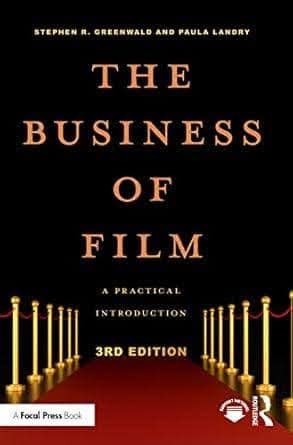
From there, get to know how to manage production budgets, negotiate contracts, and manage profit-sharing structures.
Build a Strong Network
We say this to our screenwriters all the time, but establishing relationships with filmmakers, investors, studio executives, and distributors, plus just generally growing your network within the industry will stand you in good stead.
Where do you meet these people? Well, at industry events, film festivals and networking mixers. If you can’t attend these events in person, make sure to join professional organizations and online communities related to media production.
In short, find your tribe!
Work on Passion Projects
While you’re working towards your goals to become an executive producer, you need to be building your CV, and there’s no better way to do that through doing the job but on a smaller scale. There’s no use in sitting around, waiting for things to come to you.
Many executive producers begin their careers by championing independent films or passion projects of their own. By producing these smaller projects, you can demonstrate your leadership and financial management skills.
By working on your own projects, you will also be taking the initiative in assembling creative teams and pitching ideas to potential stakeholders. Overall, it’s invaluable practice for what’s ahead.

Move into Leadership Roles
As you develop your CV and gain experience, you can begin to aim for leadership positions in production companies, television networks, or streaming platforms. Over time, successful producers will then have the opportunity to transition into executive producer roles.
It is important to remember that as with any creative industry, this can be extremely competitive, with many filmmakers aspiring for the same goals at the same top companies.
There is of course always the option to create your own production company, to have greater creative and financial control over projects. However, this path also comes with its own risks, so make sure you’re weighing up all your options carefully.
Stay Adaptable and Informed
The entertainment industry is constantly evolving, so make sure you’re keeping up with trends in content consumption, technology, and distribution as much as possible.
One of my favorite resources with keeping up to date with everything going on in the film and television industry is The Dailies, a newsletter that gets sent to your inbox three times a week. It only takes a few minutes to read but is a comprehensive guide to both the bigger picture of the industry as well as a deep dive into the trending movies, TV shows and hot topics for the week. The best part – it’s completely free! Sign up here.

Famous Executive Producers and their Impact
We’ve already mentioned the hugely talented and successful Shonda Rhimes and Vince Gilligan as stand-out executive producers and showrunners of recent years, but who else has had a huge impact on the creative industries?
Steven Spielberg
While Spielberg is often recounted for his unique and renowned directing style, he is also one of the most celebrated executive producers in the world. He has served as an executive producer on numerous successful films and TV shows, from Band of Brothers (2001) to Transformers (2007). Did you know that Spielberg’s influence was what persuaded Michael Bay to agree to direct Transformers? It just goes to show the onus Spielberg has when he signs on to executive produce – a huge stamp of approval!
His ability to blend storytelling with commercial appeal has made him a powerhouse in Hollywood.
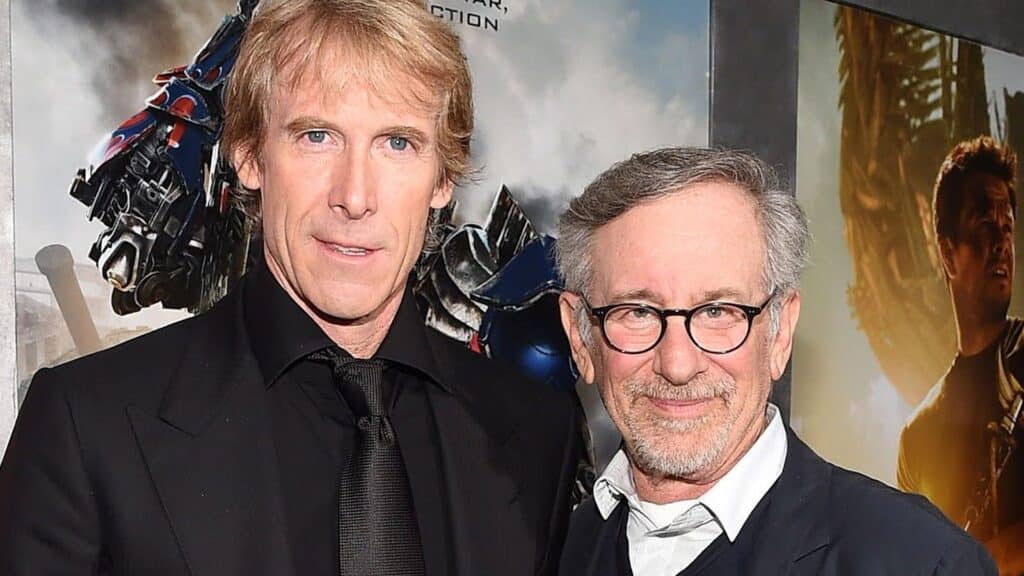
Kathleen Kennedy
As the president of Lucasfilm and a key executive producer, Kennedy has played a crucial role in major film franchises, including Star Wars and Indiana Jones. Her most notable projects to date include The Mandalorian series (2019-present), alongside The Book of Boba Fett (2022), Obi-Wan Kenobi (2022) as well as Indiana Jones and the Dial of Destiny (2023)
Her leadership has helped shape the landscape of modern blockbuster filmmaking, despite some criticism along the way.
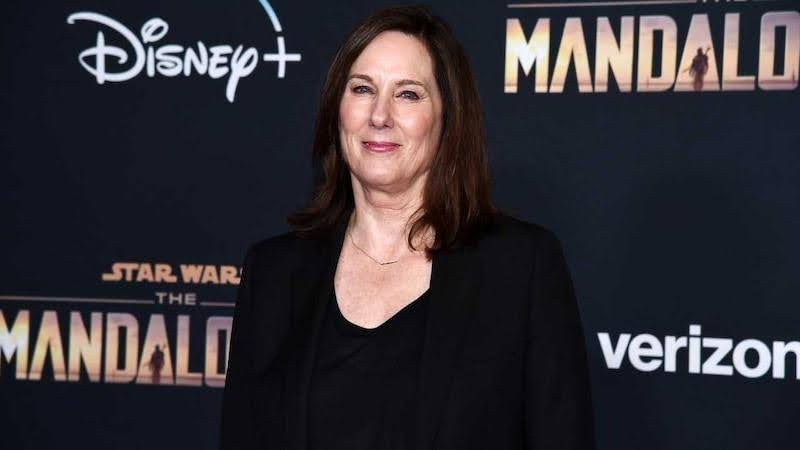
Kevin Feige
Mastermind behind the Marvel Cinematic Universe (MCU), Feige has been instrumental in developing one of history’s most successful film franchises.
His ability to oversee interconnected storytelling across multiple films and television shows has set a new standard, weaving characters and storylines together seemingly effortlessly.
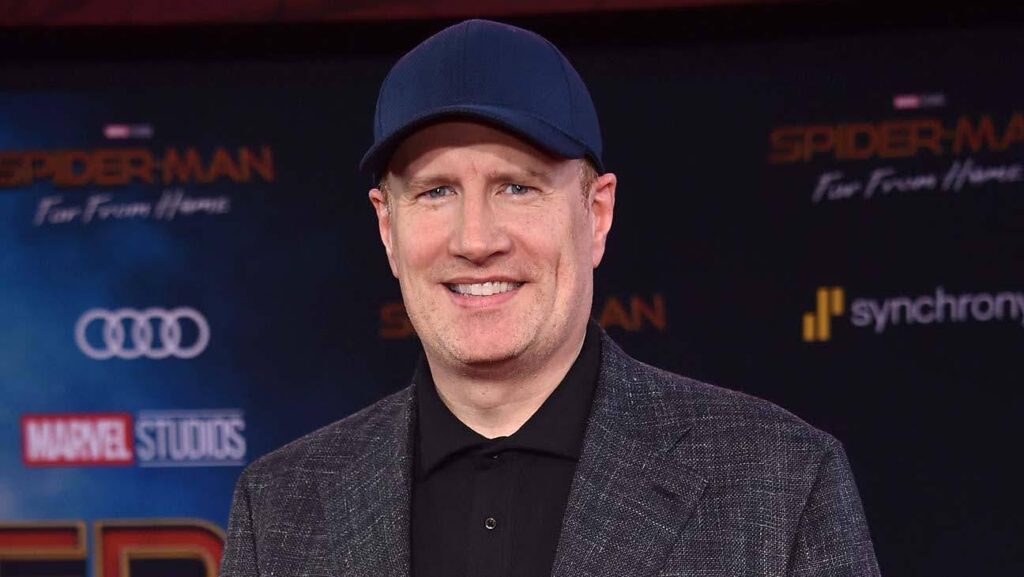
FAQ About Executive Producers
Do executive producers work on set?
Typically, executive producers do not need to be on set daily, as their role focuses more on high-level management. They are there to make sure everything is aligned with the overall vision and financial goals.
What skills are essential for an executive producer?
Key skills for an EP include financial acumen, leadership, negotiation, and creative vision. EPs must be able to juggle both business and creative responsibilities.
Can an executive producer also be a director or actor?
Yes, many executive producers wear multiple hats, especially in independent productions. It’s not uncommon for an EP to also direct or act, especially when working on passion projects or smaller productions.
Related Celtx Article: How to Write a Short Film Script [9 Highly Effective Tips]
Conclusion
The role of an executive producer is diverse and influential, shaping the creative and business aspects of a project. Whether securing funding, managing a TV show, or developing hit content for streaming platforms, executive producers play a critical role in bringing stories to life. While the path to becoming an executive producer requires industry experience, financial acumen, and strong networking skills, those who succeed can leave a lasting impact on the entertainment world.
With influential figures like Steven Spielberg, Shonda Rhimes, and Vince Gilligan demonstrating the power of an executive producer, it’s clear that this role is indispensable in crafting the films and shows we love. Whether you’re an aspiring filmmaker or a curious audience member, understanding the work of an executive producer offers valuable insights into the entertainment industry’s inner workings.
Curious about how screenwriting software can streamline your pre-production and production process?
Start your free trial of Celtx today!
Enjoyed this article? You might love these!
- Producer vs Director | 5 Key Differences (Film)
- Executive Producer vs Producer | 8 Key Differences in Filmmaking
- What is a Showrunner? (An In-Depth Guide)
